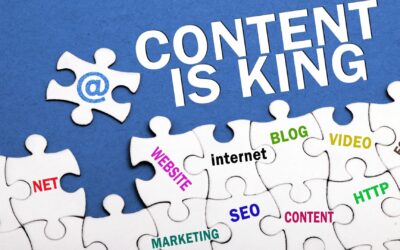- The Evolution of Modern Business Models
- The Dawn of Currency and Physical Establishments
- The Industrial Revolution’s Factory Model
- Enter the Service Era
- Digitalization and The Internet Age
- Sharing Economy and Platform-Based Models
- Blockchain and Beyond
- Sustainability and Purpose-Driven Models
- Keywords
- Key Takeaways
- Frequently Asked Questions (FAQs)
- What is the main difference between the service era and the digital age?
- Why is the sharing economy significant?
- How does blockchain impact businesses beyond cryptocurrency?
- How do purpose-driven models benefit businesses?
- Why is adaptability crucial for businesses throughout history?
- How do platform-based models generate profit?
- What challenges do sustainability-driven businesses face?
- How has digitalization impacted global trade?
- Why are traditional businesses integrating digital models?
- What’s the future of business models given rapid technological advancements?
- Myth Buster
- Myth: Barter systems were straightforward and effective.
- Myth: Digitalization only means having an online presence.
- Myth: The sharing economy is just a trend.
- Myth: Blockchain is only for cryptocurrencies.
- Myth: Sustainability in business means lower profits.
- Myth: All modern businesses need to be tech-driven.
- Myth: Service era businesses are outdated in the digital age.
- Myth: Platform-based models are only for tech giants.
- Myth: Purpose-driven businesses are just using it as a marketing gimmick.
- Myth: Traditional business models are becoming obsolete.
The Evolution of Modern Business Models
Once upon a time, not too long ago, in the grand tapestry of history, businesses operated on the simple premise of barter. Imagine wanting a loaf of bread and trading a basket of apples for it. As straightforward as it sounds, this method had its limitations. And as the world grew in complexity, so did the ways we conducted business.
The Dawn of Currency and Physical Establishments
We realized bartering wasn’t efficient. Enter currency. Gold, silver, and other precious metals served as the early medium of exchange. This not only set the stage for modern financial systems but also for the establishment of physical marketplaces. The ancient Greeks had their ‘agora’, the Romans their ‘forum’. Fast forward a few centuries, and the East India Company, operating from its majestic headquarters in London, exemplified the era of multinational corporations.
Example: In 1600s Amsterdam, the world’s first stock exchange was born. Investors bought and sold shares of companies, including the famous Dutch East India Company, showcasing an early glimpse into the modern-day stock market.
The Industrial Revolution’s Factory Model
As steam engines roared to life, the 18th century saw the birth of the factory business model. The goal? Mass production. Instead of a tailor painstakingly stitching a single dress in a day, factories could produce dozens in the same time frame.
Example: Henry Ford’s assembly line didn’t just produce cars faster; it revolutionized how products were made everywhere. His model, which drastically reduced production time for a single car, became the gold standard for efficiency.
Enter the Service Era
By the 20th century, developed economies began to notice a shift from production to service. Rather than just selling products, companies now sold experiences and solutions. Brands like McDonald’s emerged, not merely as burger sellers, but as quick-service restaurants offering a consistent, standardized experience globally.
Example: IBM started as a hardware company, producing punch-card machines. However, noticing the shift towards services, they transitioned into IT consulting, embodying adaptability in business.
Digitalization and The Internet Age
With the dawn of the 21st century, businesses experienced what could only be termed as a digital metamorphosis. The digital business model’s essence isn’t just about having an online presence but leveraging technology to create value. Companies like Netflix, initially a DVD rental service, transitioned to streaming, capitalizing on internet proliferation.
Example: Amazon began as an online bookstore. However, identifying the potential of e-commerce, they expanded to selling everything under the sun, setting the tone for modern e-commerce giants.
Sharing Economy and Platform-Based Models
Today’s tech-driven world gave birth to platform-based businesses and the sharing economy. Instead of owning assets, companies now create platforms where providers and consumers can connect.
Example: Airbnb doesn’t own properties. Instead, it offers a platform where homeowners can rent out spaces to travelers. Similarly, Uber connects drivers to riders without owning a single vehicle.
Blockchain and Beyond
Blockchain is more than just the technology behind cryptocurrencies. Its decentralized nature offers transparency and security, paving the way for innovative business models, especially in finance and supply chain.
Example: De Beers, a diamond company, uses blockchain to track diamonds from the mine to the consumer, ensuring authenticity and ethical sourcing.
Sustainability and Purpose-Driven Models
As society becomes more conscious of the environment and social impact, businesses are adapting. Today’s companies aren’t evaluated merely on profit but on their purpose and the positive change they bring.
Example: Patagonia, an outdoor clothing brand, is known for its environmental activism as much as its products. Their business model focuses on sustainability, showcasing a future where profit and purpose can coexist.
In closing, the evolution of business models is a testament to humanity’s adaptability and innovation. From bartering goods to decentralized digital platforms, these models reflect societal shifts and technological advancements. As we stand on the cusp of a new era, driven by AI, sustainability, and more, one can only wonder, with bated breath, what the next chapter holds for the world of business.
Keywords
- Barter: An ancient system of exchange in which goods and services are directly exchanged for other goods and services without using money.
- Currency: A system of money in general use in a particular country or economic context.
- Industrial Revolution: A period in the 18th and 19th centuries characterized by major advances in manufacturing, mining, and transport due to technological innovations.
- Service Era: A period when economies shifted their focus from manufacturing goods to providing services.
- Digitalization: The integration of digital technologies into everyday life, transforming traditional operations and business models.
- Platform-Based Models: Business models that create a foundation or platform where providers and consumers can connect and transact.
- Sharing Economy: An economic model based on sharing underutilized assets or services for free or for a fee, usually via the internet.
- Blockchain: A decentralized system of distributed ledgers used to record transactions across many computers.
- Sustainability: Meeting the needs of the present without compromising the ability of future generations to meet their own needs.
- Purpose-Driven Models: Business models that prioritize a mission or social cause alongside or even above profit.
Key Takeaways
- Business models have evolved significantly, moving from simple barter systems to complex, tech-driven structures.
- Currency and physical establishments marked early advancements in the business landscape.
- The Industrial Revolution shifted businesses towards mass production and efficiency.
- The 20th century marked the dominance of service-based industries over traditional production.
- The digital age has transformed business operations and strategies.
- Sharing economies and platform-based models have reshaped how businesses view ownership and operations.
- Blockchain is revolutionizing transparency, traceability, and operations in various sectors.
- Modern businesses prioritize sustainability and social impact alongside profit.
- Companies like Amazon, Netflix, and Patagonia exemplify the adaptability and evolution of business models.
- The future of business models will likely involve AI, greater sustainability efforts, and further technological advancements.
Frequently Asked Questions (FAQs)
What is the main difference between the service era and the digital age?
The service era is characterized by businesses primarily providing services over goods, focusing on experiences and solutions. The digital age, on the other hand, signifies the integration of digital technologies into business, transforming traditional operations and opening new avenues like e-commerce and digital streaming.
Why is the sharing economy significant?
The sharing economy challenges traditional notions of ownership. Instead of owning assets, businesses provide platforms for individuals to share or rent assets, creating more efficient, scalable, and flexible economic models.
How does blockchain impact businesses beyond cryptocurrency?
Blockchain offers a transparent, secure, and decentralized way to record transactions. This can revolutionize industries like supply chain by ensuring authenticity and ethical sourcing, finance through transparent and tamper-proof record-keeping, and even real estate through transparent property transactions.
How do purpose-driven models benefit businesses?
Purpose-driven models allow businesses to address societal or environmental issues, earning trust from consumers, increasing brand loyalty, and often driving innovation in the process.
Why is adaptability crucial for businesses throughout history?
With changing technological and societal landscapes, businesses that adapt survive and thrive. For instance, companies like IBM transitioned from hardware to IT consulting, showcasing the importance of adaptability.
How do platform-based models generate profit?
Platform-based models usually earn through commission, subscription fees, advertising, or a combination of these. They capitalize on network effects: the more users they have, the more valuable the platform becomes.
What challenges do sustainability-driven businesses face?
Such businesses might grapple with higher initial costs, challenges in sourcing sustainable materials, and balancing profit with purpose. However, the long-term benefits often outweigh these challenges.
How has digitalization impacted global trade?
Digitalization has made it easier for businesses to reach global markets, understand consumer behavior through data analytics, and operate more efficiently through automation and e-commerce.
Why are traditional businesses integrating digital models?
To remain competitive, increase reach, and meet changing consumer expectations, traditional businesses are adopting digital strategies.
What’s the future of business models given rapid technological advancements?
With AI, quantum computing, and further technological advancements, businesses will likely see more automation, personalized consumer experiences, and even newer models we haven’t yet imagined.
Myth Buster
Myth: Barter systems were straightforward and effective.
Reality: Barter systems had limitations like double coincidence of wants. Currency introduced efficiency and scalability in transactions.
Myth: Digitalization only means having an online presence.
Reality: Digitalization involves leveraging technology to transform business operations, strategies, and value propositions.
Myth: The sharing economy is just a trend.
Reality: The sharing economy reflects a deeper shift in consumer behavior, emphasizing access over ownership and is likely here to stay.
Myth: Blockchain is only for cryptocurrencies.
Reality: Blockchain offers diverse applications, from supply chain management to voting systems, due to its transparent and secure nature.
Myth: Sustainability in business means lower profits.
Reality: While there may be initial costs, sustainability can lead to long-term savings, brand loyalty, and tapping into conscious consumer markets.
Myth: All modern businesses need to be tech-driven.
Reality: While technology is pivotal, the essence of a business lies in its value proposition and understanding its consumers. Tech should be an enabler, not the sole focus.
Myth: Service era businesses are outdated in the digital age.
Reality: Many service businesses have seamlessly integrated digital models and continue to thrive due to their experiential value.
Myth: Platform-based models are only for tech giants.
Reality: Small businesses too can and do leverage platform models, whether it’s local artisans selling on Etsy or tutors teaching on online platforms.
Myth: Purpose-driven businesses are just using it as a marketing gimmick.
Reality: While some might, many businesses are genuinely committed to societal and environmental change, integrating it deeply into their operations and strategies.
Myth: Traditional business models are becoming obsolete.
Reality: Many traditional models are evolving and integrating new-age strategies to remain relevant and competitive.












0 Comments